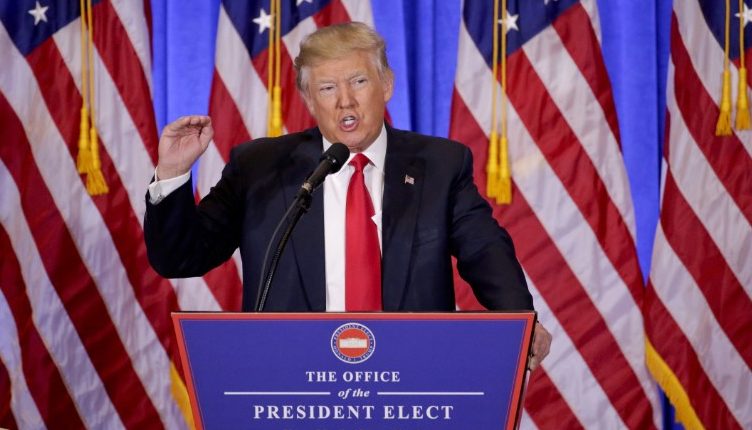- For his racist trolling of the first African-American President over his birth certificate, which was based on an “extremely credible source,” Donald Trump deserves every Twitter urine joke splashed his way, but that doesn’t mean it wasn’t bizarre for BuzzFeed to release unverified, unsubstantiated documents (though WikiLeaks should really leave the criticism to others). The site certainly was right to have reported on the intel briefings Trump and President Obama received on the matter, but things should have been left there until the rest of the information was corroborated. It’s no surprise that didn’t happen since BuzzFeed isn’t a pillar of journalism but what was offered as a cheap substitute once the towers began foundering. That’s where we are now, and BuzzFeed is hardly the worst of what we’ve got. It’s still nowhere near as egregious as Breitbart, Fox, the National Enquirer, etc.
- Wouldn’t be surprised if the peeing-on-the-Obama-bed detail originated from the same type of mentality that turned out the Rolling Stone faux UVA rape article, a piece seemingly engineered for maximum outrage. Anything is possible–I mean Trump is sick–but if Russia has recordings of deviant behavior by the President-Elect, I would guess the details are different. How much worse can it be, though, than the sexually predatory abuses we already know about?
- The potential conspiracy between the Trump campaign and Russia, however, is a huge deal. From the GOP candidate publicly encouraging the Kremlin to hack the election to the close ties he and and his inner circle have to Putin to the Fisa warrant request to Rudy Giuliani’s cryptic comments about a “pretty big surprise” days before James Comey’s shocking (and baseless) reopening of the FBI investigation into HRC emails, there likely were plenty of machinations to subvert a free election. There always are some degree of shenanigans, but this election was extraordinary by normal standards. It wasn’t business as usual.
In addition to upsetting journalistic traditions by changing the economy of news, the Internet has proven to abet political tribalism, allowing for narrowcasting and encouraging groups to circle wagons. Amanda Taub’s New York Times piece “The Real Story About Fake News Is Partisanship” looks at these phenomena, though I’ll risk being labeled a partisan by saying that I don’t think there’s exact equivalence on the left and right in this matter. The heartbreaking demagogic appeal to racism and anti-Semitism during this cycle has been almost solely the product of a perversion of the modern GOP. An excerpt:
Partisan tribalism makes people more inclined to seek out and believe stories that justify their pre-existing partisan biases, whether or not they are true.
“If I’m a rabid Trump voter and I don’t know much about public affairs, and I see something about some scandal about Hillary Clinton’s aides being involved in an assassination attempt, or that story about the pope endorsing Trump, then I’d be inclined to believe it,” Mr. Iyengar said. “This is reinforcing my beliefs about the value of a Trump candidacy.”
And Clinton voters, he said, would be similarly drawn to stories that deride Mr. Trump as a demagogue or a sexual predator.
Sharing those stories on social media is a way to show public support for one’s partisan team — roughly the equivalent of painting your face with team colors on game day.
“You want to show that you’re a good member of your tribe,” Mr. Westwood said. “You want to show others that Republicans are bad or Democrats are bad, and your tribe is good. Social media provides a unique opportunity to publicly declare to the world what your beliefs are and how willing you are to denigrate the opposition and reinforce your own political candidates.”
Partisan bias fuels fake news because people of all partisan stripes are generally quite bad at figuring out what news stories to believe. Instead, they use trust as a shortcut. Rather than evaluate a story directly, people look to see if someone credible believes it, and rely on that person’s judgment to fill in the gaps in their knowledge.•
Tags: Amanda Taub

